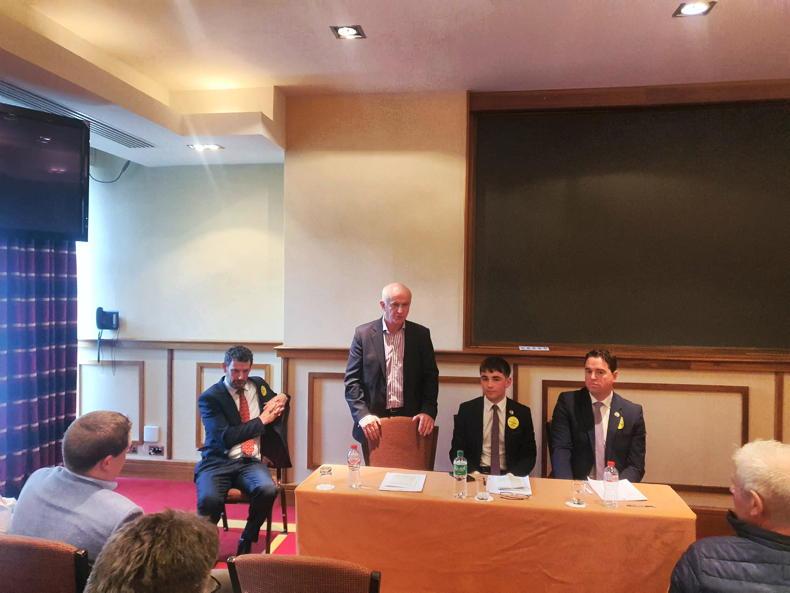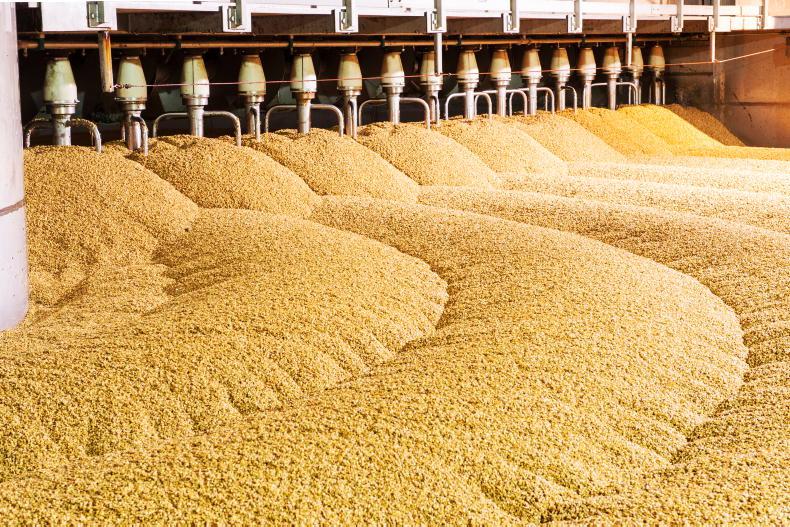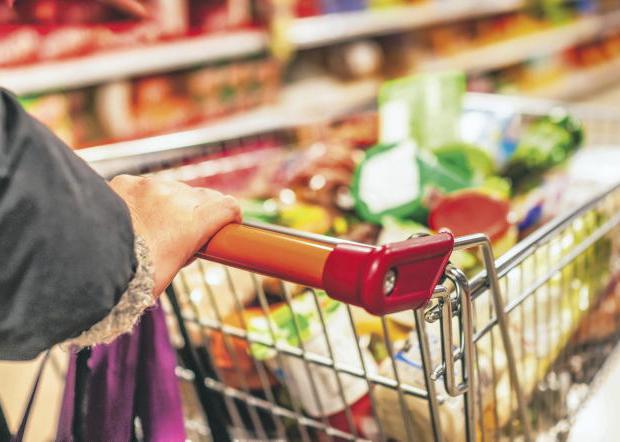Tánaiste Leo Varadkar says that no farmer will be told by Government to reduce their cattle numbers.
Speaking to the press at Fine Gael’s agriculture conference on Saturday afternoon, he said it would “make no sense at all” to cut food production in pursuit of a sectoral reduction in carbon emissions.
Asked where he felt agriculture’s emissions reduction target should fall within the 21-30% reduction band set for it, the Fine Gael leader said: “We’re going to have to negotiate that in the coming weeks.
“For every sector it’s going to be challenging to achieve those targets. The agricultural sector is actually being asked for the lowest reduction of any sector.
“We’re trying to do everything we can that is sensible to reduce emissions, and to get as close as we can to achieving those targets,” he added.
“But nobody’s going to be told that their car is going to be confiscated, nobody’s going to be told that their factory is going to be shut down, no inward investor that wants to invest in Ireland that they’re not welcome, and no farmer’s going to be told to stop farming, or to reduce the number of cattle or animals they have.
“So, I really want to say to people is a message of reassurance. We will set targets, and will do everything that is sensible to achieve them, but not to the extent that it reduces the amount of food that we produce. That would make no sense at all, in a world where there are more people to be fed every day.”
In relation to the KPMG report commissioned by the Irish Farmers Journal that assessed the effect on farming of a 30% sectoral target at €4bn annual losses and 56,000 job losses, the Tánaiste said: “That’s a set of projections and I’m not sure I’d fully subscribe to them.”
Turf issue “not resolved”
In relation to turf, Leo Varadkar said the issue was “not resolved”, but rather is still an ongoing issue.
“We’re working as three parties within government to come up with a solution,” he said, adding that there is “no dispute” that people with turbary rights will be protected.
Varadkar then went further, adding that “people who have traditionally been giving turf to neighbours or friends or even selling turf on a small-scale basis within their communities, that is something that we want to protect, because those traditional practices have been going on for a very long time”.
Meanwhile, Eddie Downey was elected as chair of the newly formed Fine Gael agriculture and rural development forum.
The former IFA president defeated former Oireachtas agriculture committee chair Pat Deering.

Eddie Downey (standing) , the newly-elected chair of the Fine Gael Agriculture and Rural Development Forum, addresses its inaugural meeting.
With him are Colm Markey MEP, Shane Dolphin, who organised Fine Gael's Agriculture conference, and Minister of State Martin Heydon.
Ballylickey, Co Cork, suckler farmer John Dineen won a three-way contest for the vice-chair, holding off the challenge of Tom Malone and Hugh Farrell.
Speaking after his election, Downey said the urban/rural divide needed to be healed.
“This committee needs to connect rural Ireland and the agriculture sector to the Oireachtas. And we need to connect the Oireachtas back, it’s a two way street.
“We must do good by the climate agenda, but we also must do good by the rural agenda,”added Downey.
Tánaiste Leo Varadkar says that no farmer will be told by Government to reduce their cattle numbers.
Speaking to the press at Fine Gael’s agriculture conference on Saturday afternoon, he said it would “make no sense at all” to cut food production in pursuit of a sectoral reduction in carbon emissions.
Asked where he felt agriculture’s emissions reduction target should fall within the 21-30% reduction band set for it, the Fine Gael leader said: “We’re going to have to negotiate that in the coming weeks.
“For every sector it’s going to be challenging to achieve those targets. The agricultural sector is actually being asked for the lowest reduction of any sector.
“We’re trying to do everything we can that is sensible to reduce emissions, and to get as close as we can to achieving those targets,” he added.
“But nobody’s going to be told that their car is going to be confiscated, nobody’s going to be told that their factory is going to be shut down, no inward investor that wants to invest in Ireland that they’re not welcome, and no farmer’s going to be told to stop farming, or to reduce the number of cattle or animals they have.
“So, I really want to say to people is a message of reassurance. We will set targets, and will do everything that is sensible to achieve them, but not to the extent that it reduces the amount of food that we produce. That would make no sense at all, in a world where there are more people to be fed every day.”
In relation to the KPMG report commissioned by the Irish Farmers Journal that assessed the effect on farming of a 30% sectoral target at €4bn annual losses and 56,000 job losses, the Tánaiste said: “That’s a set of projections and I’m not sure I’d fully subscribe to them.”
Turf issue “not resolved”
In relation to turf, Leo Varadkar said the issue was “not resolved”, but rather is still an ongoing issue.
“We’re working as three parties within government to come up with a solution,” he said, adding that there is “no dispute” that people with turbary rights will be protected.
Varadkar then went further, adding that “people who have traditionally been giving turf to neighbours or friends or even selling turf on a small-scale basis within their communities, that is something that we want to protect, because those traditional practices have been going on for a very long time”.
Meanwhile, Eddie Downey was elected as chair of the newly formed Fine Gael agriculture and rural development forum.
The former IFA president defeated former Oireachtas agriculture committee chair Pat Deering.

Eddie Downey (standing) , the newly-elected chair of the Fine Gael Agriculture and Rural Development Forum, addresses its inaugural meeting.
With him are Colm Markey MEP, Shane Dolphin, who organised Fine Gael's Agriculture conference, and Minister of State Martin Heydon.
Ballylickey, Co Cork, suckler farmer John Dineen won a three-way contest for the vice-chair, holding off the challenge of Tom Malone and Hugh Farrell.
Speaking after his election, Downey said the urban/rural divide needed to be healed.
“This committee needs to connect rural Ireland and the agriculture sector to the Oireachtas. And we need to connect the Oireachtas back, it’s a two way street.
“We must do good by the climate agenda, but we also must do good by the rural agenda,”added Downey.










SHARING OPTIONS